#MondayMaterials Episode 18 – Rosy Boardman
#MondayMaterials Fashion 29th February 2016
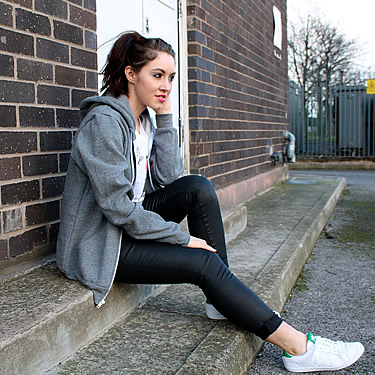
It’s time for Episode 18 of #MondayMaterials, everybody! Thanks for joining us once again.
We’re with Rosy Boardman today. Rosy recently finished her PhD here in the School of Materials and is working here as a Lecturer. But that wasn’t how I actually first heard of her. In fact, after interviewing the amazing Victoria Magrath for the blog, I was doing a little bit of Twitter search for similar bloggers when I came across Ro’s Tinted. It was only after I’d been the site for a while that I realised that Rosy, the blog’s author, was one of our own.
I immediately approached her for an interview and I’m glad I did. You can see why below:
Hi Rosy – great to meet you. Thanks for taking part in the blog. Could you start by describing your research, for the layman, in ten sentences or less?
Yeah, so I look at digital strategy and innovation, specifically applied to fashion retailers.
So I look generally at online shopping and how consumers behave when they’re shopping online. For instance, my PhD used eye-tracking technology and looked at how people shopped on the website. It looked at consumers across all age groups, twenty to seventy, and whether there were any differences. You know – does a twenty year old behave the same way as a seventy year old – things like that? So you could see exactly where they were looking on the page, and exactly where they weren’t looking. So yeah, that’s my research…
Brill, thanks. So can you tell us how your research can benefit the public?
Yeah, so I think it’s quite beneficial to the public in the way that websites are designed. You know, when retailers first designed their websites it was very much about them being simple and easy for them to get the data off and process the sales. Whereas now, more and more people are shopping online so it’s become much more important for retailers to provide a good experience.
People don’t just want complicated websites or boring websites. They want it to be easy, but they want it to be inspiring, fun, and interesting. So it’s going to benefit them because hopefully they’ll have a better shopping experience.
But also, now that more and more older people are shopping online, it’s about seeing whether websites can be better targeted towards them. Because, again, retailers didn’t generally target older consumers with their websites or with their online channels, social media, or anything like that. But it’s becoming more and more relevant and it’s about seeing if, when retailers are targeting these customers, can they make improvements? Can they make things easier for them to use and better for them?
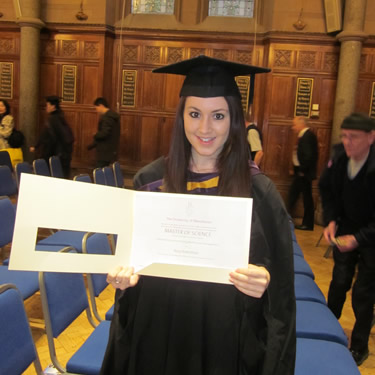
So, I think that’s how it can benefit both retailers and consumers!
Exciting stuff, Rosy. Thanks again. So how did you first get interested in your research area?
Well I’ve always been interested in fashion for starters. But I didn’t do my first degree in fashion; I did it in my favourite subjects from school, which were History, English, and History of Art. So, you know, I’ve always been quite academic and I enjoyed that degree. But I always had the aim of working in the fashion industry afterwards. But it didn’t work out. I found out quite quickly, at the age of twenty-one, that if you wanted the kind of job that I wanted – like a fashion buyer or fashion marketing manager – you needed to get a degree in fashion.
So I did a lot of internships and worked for free. It was hard. And then I saw the course at Manchester, for a Masters in International Fashion Retailing. So I came here to do that. I really came here as – it was almost like a business conversion course. I thought I’ll do this, get the qualification, and then go and work in the fashion industry. But I didn’t really anticipate how much I would enjoy studying it and doing fashion from an academic point of view. I got really, really into my dissertation and I looked at online fashion retailing in that – how retailers were providing fashion information for consumers online. It really inspired me; it opened up a new world of fashion from an academic point of view.
Then I left after getting a distinction in my Masters, and ironically I got the job I’d wanted originally – as a fashion buyer and fashion marketing manager. But I was desperate to come back and carry it on, so when I got offered my PhD I jumped at the chance. I left my job and came straight back and I haven’t left since!
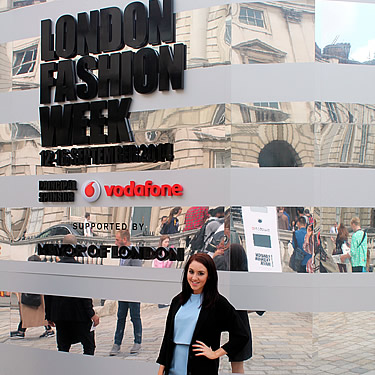
And who or what first inspired your interest in fashion?
As far as I can remember I’ve always been interested in fashion. I love shopping, so I think from being a teenager, early teens, I started to get more into clothes and shopping with my friends and my mum. And I just started to read around the subject a bit more in my own time; reading Vogue and different fashion magazines like that.
I was so interested that I then got my first job working on the shop floor. And I just got more and more involved as time went on. I did my best to get involved in marketing opportunities in that job.
So just generally from that – I think I just got myself into it!
So, moving away from work for a while, could you tell us about your other interests? What do you get up to in your spare time?
Yeah, other than work I’m a fashion blogger so I spend a lot of my time, well when I’ve got spare time, blogging. I’m a lifestyle, beauty, and fashion blogger, so it could be anything. It’s really nice to just write about whatever I feel like; having my own space on the internet to do that. It’s a nice hobby. Sharing my style, my recipes, anything like that.
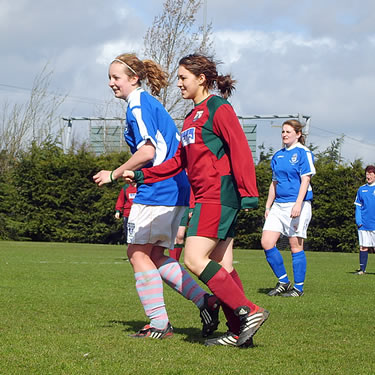
And then my other big hobby, if I’m not blogging or working or shopping, is sport. I’m really into my sport. Whether it be fitness; like I do aerobics, yoga, pilates, all here at the University. And I’m a big football fan. I used to play, but I’m not playing at the minute. I’m just following it. I’m a big Manchester United fan.
So yeah, that pretty much fills my life. All of those things.
Great, thanks. We’ll be sure to check out the blog and I won’t mention Man United’s season! One last question, then. Could you tell us how being here in Manchester has helped your work and research?
I think there’s two ways really. Firstly, being at the University itself. It’s a fantastic University and I think it’s so unique in what it offers. In that you can do the fashion from the creative side and do what you want in terms of research, but also it’s so business focused and it’s got links with industry. It is just unique in that way. I can teach and I can do my research, and I love both. And I don’t feel like I can have that anywhere else.
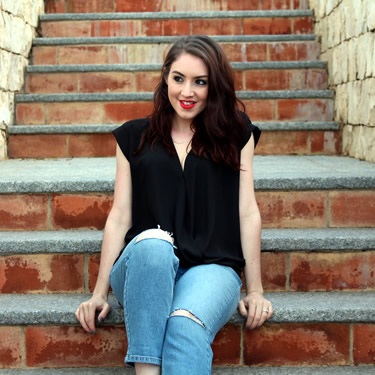
But also the links with industry. There are a lot of retailers up here. I’ve collaborated with two retailers in the North West already, and that’s benefited my research a lot. And there’s always things going on. And for my blogging as well – there’s loads of events up here. And it’s just a great city. I love living here; it’s a great social scene. Bars, restaurants – yeah, everything. Shopping, obviously. It’s brilliant. So I think it’s benefited me, honestly, a lot.
That’s great to hear, Rosy! Thanks so much for chatting to us. Well, that’s it for another #MondayMaterials – just two more and we’ll be hitting 20! Next time we’re with Aidan Rooney, so please come back to see us then. Thanks for reading!
FashionFashion retailsOnline shoppingPhDSchool of MaterialsThe University of Manchester

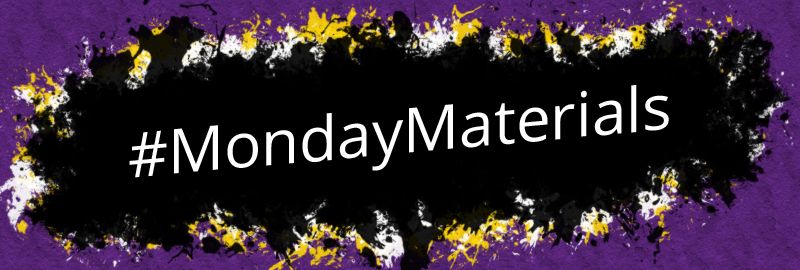
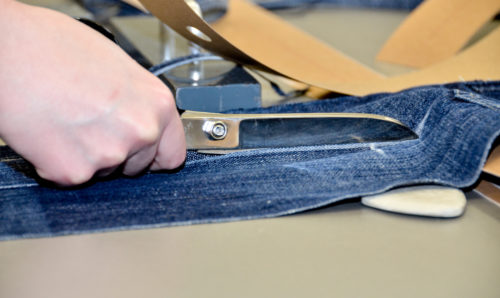
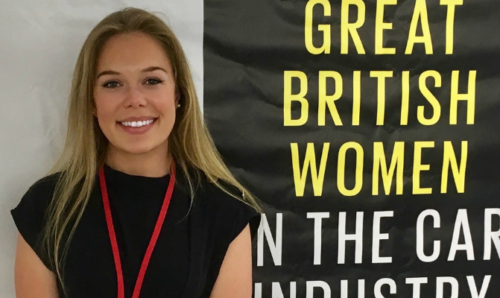
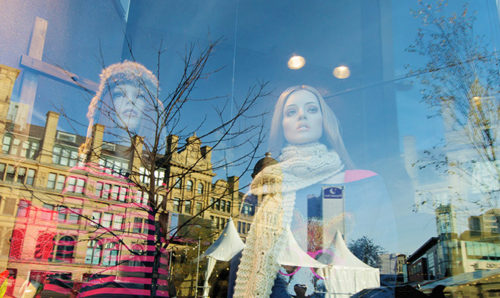
Leave a Reply
You must be logged in to post a comment.